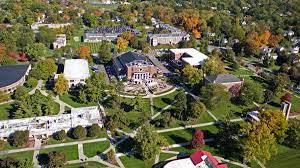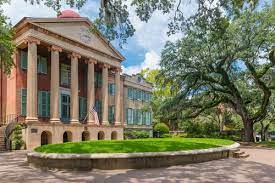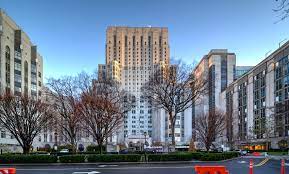The Comprehensive Guide to the College of Engineering, UMass Amherst
Introduction
Welcome to the comprehensive guide to the College of Engineering at the University of Massachusetts Amherst! Whether you're a prospective student, a current student, or simply interested in learning more about this esteemed institution, this guide will provide you with all the essential information about the College of Engineering. From its academic programs and faculty to research opportunities and campus facilities, we will explore the various aspects that make this college a leading institution in engineering education and research.
Overview of the College of Engineering
The College of Engineering at the University of Massachusetts Amherst is a vibrant and innovative academic unit dedicated to advancing engineering knowledge and preparing students to become leaders in their fields. With a commitment to excellence in education, research, and community engagement, the college offers a wide range of academic programs and opportunities for students to gain practical experience and develop critical problem-solving skills.
Academic Programs
The College of Engineering offers a diverse array of undergraduate and graduate programs across various disciplines of engineering. Some of the academic programs offered by the college include:
-
Mechanical Engineering: The mechanical engineering program focuses on the study of mechanical systems, energy conversion, robotics, and materials science. Students learn fundamental engineering principles and gain hands-on experience in designing and analyzing mechanical systems.
-
Civil and Environmental Engineering: The civil and environmental engineering program covers areas such as structural engineering, transportation engineering, geotechnical engineering, and environmental engineering. Students gain knowledge and skills in designing and managing infrastructure systems that are sustainable and resilient.
-
Electrical and Computer Engineering: The electrical and computer engineering program emphasizes the study of electrical systems, electronics, computer hardware, and software. Students learn about circuit design, signal processing, communication systems, and computer architecture.
-
Chemical Engineering: The chemical engineering program focuses on the study of chemical processes, materials synthesis, and environmental sustainability. Students gain knowledge in areas such as thermodynamics, transport phenomena, reaction kinetics, and process control.
These are just a few examples of the academic programs offered by the College of Engineering. The college also offers interdisciplinary programs, minors, and certificates that allow students to explore multiple areas of interest and tailor their education to their career goals.
Faculty and Research
The College of Engineering boasts a distinguished faculty composed of accomplished researchers, scholars, and practitioners in their respective fields. Faculty members are actively engaged in cutting-edge research that addresses societal challenges and advances knowledge in various engineering disciplines. Through their expertise and mentorship, faculty members provide students with a high-quality education that combines theoretical knowledge with practical skills.
The college's research efforts span a wide range of areas, including sustainable energy, advanced manufacturing, robotics, bioengineering, environmental engineering, and data science. Students have the opportunity to participate in research projects, work in state-of-the-art laboratories, and collaborate with faculty members on innovative solutions to real-world problems.
Campus Facilities
The College of Engineering is housed in modern facilities equipped with state-of-the-art technologies and equipment. Some notable campus facilities include:
-
Marcus Hall: Marcus Hall serves as the primary hub for the College of Engineering. It houses classrooms, laboratories, and faculty offices, providing students with a collaborative and engaging learning environment.
-
Engineering Research Building: The Engineering Research Building is a state-of-the-art facility dedicated to research and innovation. It features advanced laboratories, computational resources, and research spaces where faculty and students conduct cutting-edge research.
-
Engineering Student Center: The Engineering Student Center is a vibrant space where students can gather, study, and connect with their peers. It provides resources and support for academic and professional development, including advising services, career guidance, and student organizations.
Student Life
The College of Engineering offers a dynamic and supportive student life experience. Students have the opportunity to engage in a wide range of activities and organizations that complement their academic journey and promote personal and professional growth. Some highlights of student life in the college include:
-
Engineering Clubs and Organizations: The college offers a variety of student clubs and organizations focused on different engineering disciplines and professional development. These clubs provide opportunities for networking, leadership development, and collaboration on engineering projects.
-
Cooperative Education and Internship Programs: The college encourages students to gain practical experience through cooperative education and internship programs. These opportunities allow students to apply their classroom knowledge in real-world settings, develop professional skills, and build industry connections.
-
Engineering Competitions and Design Projects: The college organizes engineering competitions and design projects where students can apply their engineering skills and creativity to solve practical problems. These projects foster teamwork, innovation, and critical thinking.
Notable Alumni
The College of Engineering has a network of successful alumni who have made significant contributions to their professions and communities. Notable alumni include:
- Michael D. Griffin: Former NASA Administrator and aerospace engineer.
- Susan Hockfield: Neuroscientist and former President of the Massachusetts Institute of Technology (MIT).
- Gilda Barabino: Biomedical engineer and President of the Olin College of Engineering.
These are just a few examples of the accomplished alumni who have emerged from the College of Engineering.
FAQs
-
Q: How can I apply to the College of Engineering at the University of Massachusetts Amherst? A: Prospective undergraduate students can apply to the college through the University of Massachusetts Amherst undergraduate admissions process. For graduate programs, specific application procedures and requirements are available on the college's website.
-
Q: Are scholarships available for students in the College of Engineering? A: Yes, the college offers various scholarships and financial aid opportunities for eligible students. Detailed information about scholarships and financial aid can be obtained from the college's financial aid office.
-
Q: Are there opportunities for undergraduate research in the College of Engineering? A: Yes, the college encourages undergraduate students to engage in research. Students can work closely with faculty mentors on research projects, present their findings at conferences, and even publish their work.
Conclusion
In conclusion, the College of Engineering at the University of Massachusetts Amherst offers a diverse range of academic programs, accomplished faculty, research opportunities, and campus facilities that provide students with a comprehensive education in engineering. Whether you're interested in designing sustainable infrastructure, developing innovative technologies, or advancing scientific knowledge, this college provides a supportive and stimulating environment for your educational and professional growth. Through its commitment to excellence in education, research, and innovation, the College of Engineering prepares students to tackle the complex engineering challenges of the future.

 By
By


